Start - Aktualności - Silesian University of Technology in the centre of debate on economic development and security
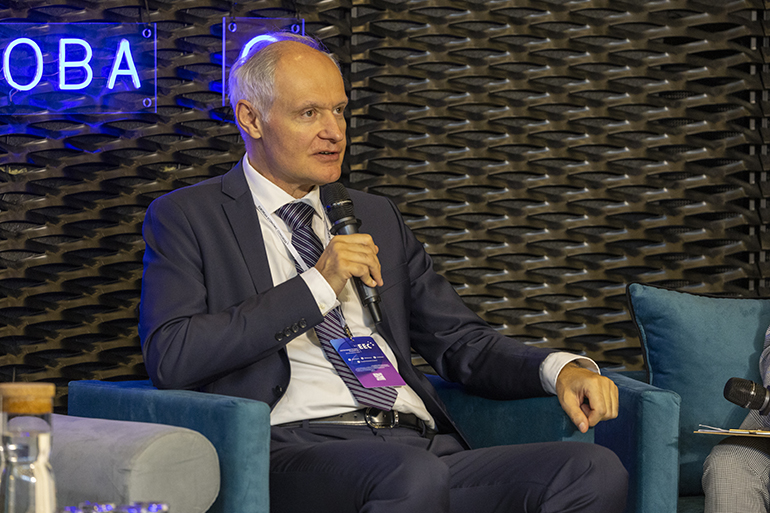
Silesian University of Technology in the centre of debate on economic development and security
On the 22nd and 24th of April 2025 Katowice became once again the centre of the European economic debate. The European Economic Congress (EEC), one of the most important business events in Central and Eastern Europe, brought together leaders of business, science, government, and politics. A special role during this year’s edition was played by Silesian University of Technology, which actively participated in discussions and presentations on innovation, energy transformation and the development of modern technologies.
The 17th edition of the European Economic Congress in Katowice is behind us. During three-day debates and meetings, representatives of the Silesian University of Technology took part in discussions on the role of science in the economy, presented their potential, and shared their knowledge.
Numerous discussion panels and events accompanying the congress were attended by representatives of the rector’s authorities with the rector of the Silesian University of Technology, Prof. Dr Hab. Eng. Marek Pawełczyk. The Rector took part in many discussions, presenting an important voice of technical universities on economic development. On the first day, he participated in a panel on “Science for the economy” and emphasized the role of scientists in the process of Silesian transformation.
“We are at the heart of the region that is most affected by the transformation process. We want to take part in these changes, hence the presence of our experts in the panels. We are working on the so-called White Book of Energy Transformation, in which we are strongly involved. The topics of digital transformation and climate policy are also important to us. Our experts have a lot to say about these issues”– said the Rector.
The potential of science in the development of the Polish economy was also emphasized by the Deputy Minister of Science and Higher Education, Prof. Marek Gzik.
"Human resources training for industrial development is an important aspect of economic development in general. The Silesian University of Technology and many other Polish universities do it excellently” – said the Deputy Minister. – “The potential of the university will also be used in investments related to defence. Almost 190 billion zlotys have been reserved for this purpose in the budget this year. Special programs to support dual-use innovation, including the defence system, can be used by scientists, universities and institutions that have such potential. To this end, the programs implemented by the National Centre for Research and Development will be launched.” – added Prof. Gzik.
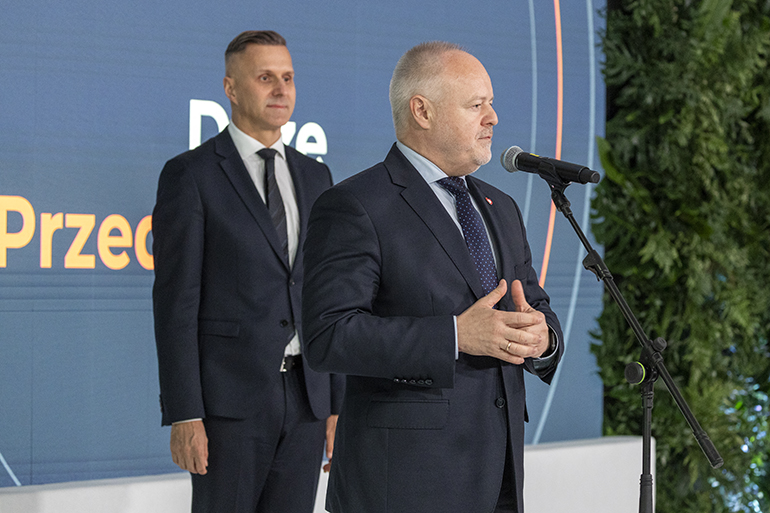
The voice of the Silesian University of Technology in debates about the future
Other representatives of the Silesian University of Technology also argued about the possibility of supporting scientific solutions of industry and economy in subsequent panels.
The first day of the debate on the future of aviation was attended by Prof. of Silesian University of Technology Jarosław Kozuba, director of the Civil Aviation Personnel Training Centre of Central and Eastern Europe at the Silesian University of Technology. In turn, Prof. Małgorzata Dobrowolska participated in the debate on the transformation of Silesia. The voice of the Silesian University of Technology was also voiced in the debate on the subject of Industry 5.0, in which Prof. Dr Hab. Eng. Bożena Skołud, Vice-Rector for General Affairs of Silesian University of Technology participated.
“Artificial intelligence can propose many solutions, but in the end, it is the human person who should decide how to use these solutions,” said professor Skolud, commenting in this way on the vision of replacing human competences with artificial intelligence. Automation and digitization of processes, which affect more and more spheres of life, became one of the important topics of the panels during the three-day Congress. There has been a lot of talk about digital competences and how they are particularly important in times of anxiety.
“If the theme of the Congress is security, then the discussion about digital competences is almost necessary here. Digital competences should be possessed by younger citizens as well as seniors or decision-makers dealing with the security of our country” – said Dr Hab. Eng. Szymon Ogonowski, Prof. SUT. – “We should talk about how each of these groups is taught. On the one hand, we need to explain how one can use one’s digital competences, but on the other hand, sensitize to possible threats coming from digitization, including cyber-attacks and disinformation.”
It is the security that was the theme of this year’s Congress. There were talks on many aspects of safety. The subject of energy security was addressed, among others, by Dr Hab. Eng. Łukasz Bartela, Prof. SUT, who emphasised the importance of nuclear technologies in the energy transition of the country.
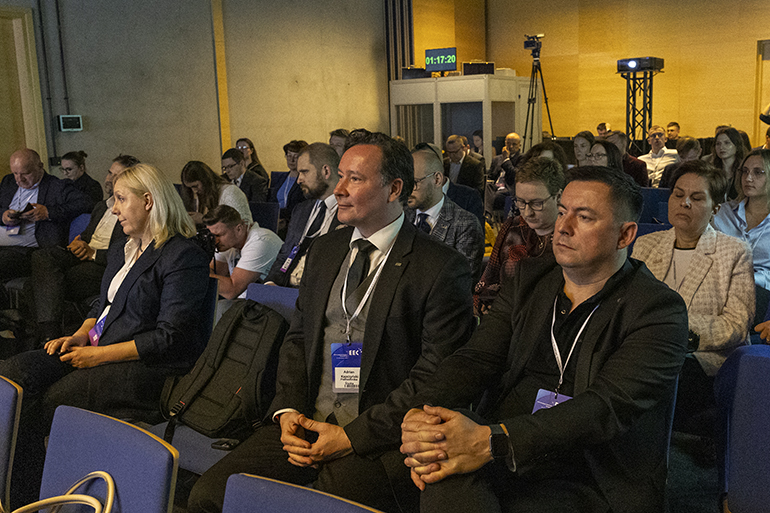
A scientific recipe for transformation
Energy security was also discussed during the discussion on the transformation of the region. This was discussed in numerous debates - both official, panel, but also backstage ones.
On the third day of the European Economic Congress, a panel discussion with the participation of Rector Marek Pawełczyk also discussed the importance of climate education and training of staff that will support the transformation process and find itself on the modern labour market, responding to the challenges we face.
- “We listen to the needs of business. We try to respond to this and construct our study programs in such a way that our graduates have the appropriate competences” – said Prof. Dr Hab. Eng. Anna Chrobok, Vice-Rector for Student Affairs and Education at the Silesian University of Technology.
- “In May, recruitment for sustainable consumption and production, green technologies, as well as rehabilitation of post-industrial areas will begin. This is our response to the needs of the market and the ongoing process of energy transformation in the region. Thus, we provide our future students with competences that will be required for.” – added the Vice-Rector.
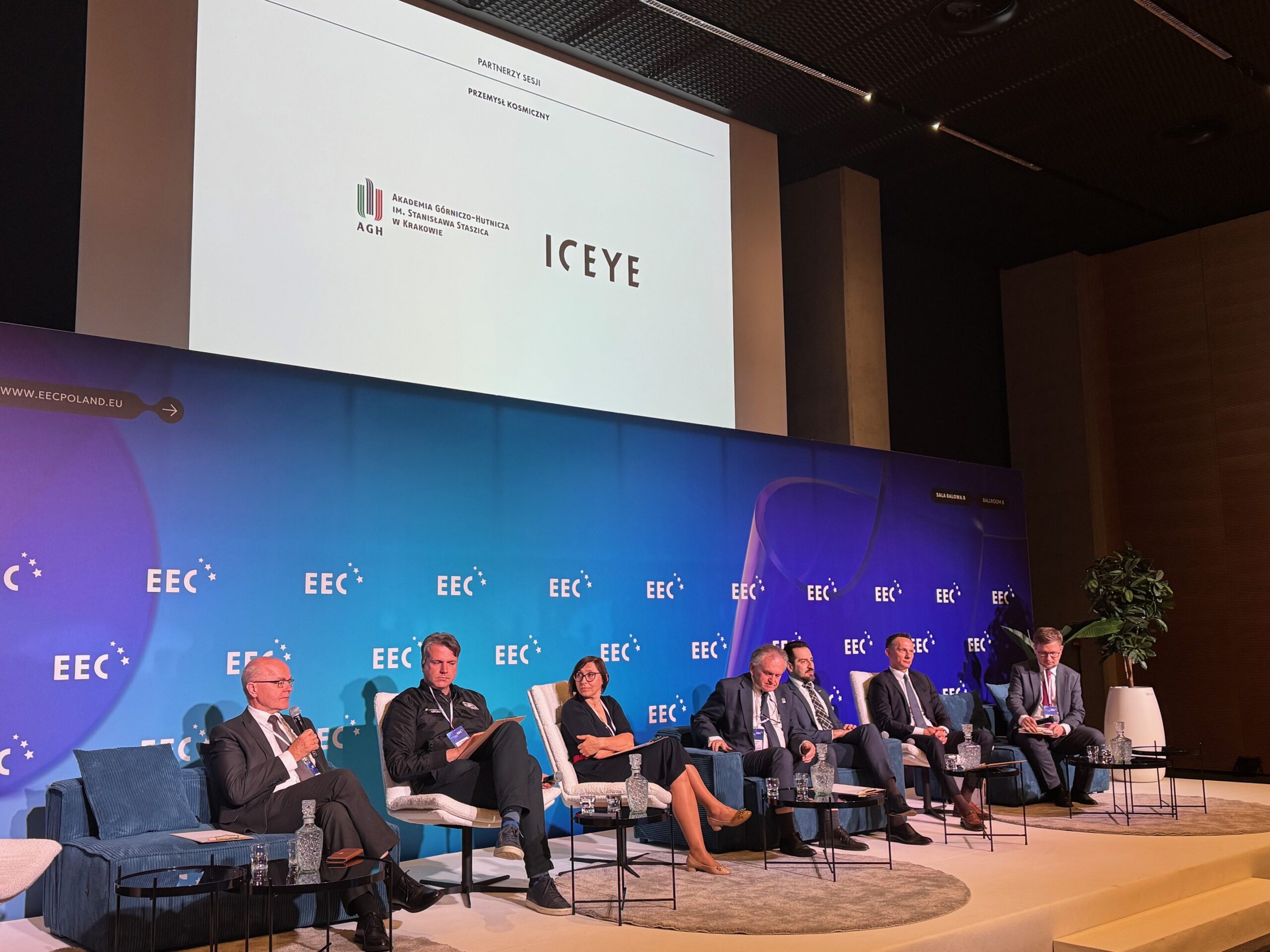
Innovative projects are created in universities
Experts participating in the European Economic Congress had no doubts that all investments, especially those in Silesia, should focus on the development of new industries that will turn the Silesian Voivodeship into a region of innovative technologies. Already today, many companies from modern sectors – space or aviation – have been established here. - “The space industry has potential for development, but for this purpose, programs should be created to support education and establishing relationships with business partners,” said Professor Tomasz Błachowicz in the debate on the aviation industry.
Walking around the hall of the International Congress Centre and Spodek, where the Congress was held, one could see how many innovative projects are being implemented by Polish companies and how many of these inventions are being created in the Silesian Voivodeship.
At the Silesian University of Technology stand, innovative potential was also presented. The interest in a Mars rover and a special task drone was a confirmation of this. Representatives of the Student Science Clubs – Silesian Phoenix and Highflyers took full advantage of the opportunity to establish new contacts.
"We were visited by many interested people and guests who asked about our invention, about possible use in industry. This inspired us, in many cases resulted in exchange of contacts. It was an excellent opportunity to present our achievements.” – said Dr Eng. Andrzej Jałowiecki from SKN Silesian Phoenix.
The participation of the Silesian University of Technology in the European Economic Congress in Katowice was a clear signal that technical universities play a key role in the economic transformation of Poland and the region. Thanks to its involvement in dialog with business, development of innovative technologies and support for young talents, Silesian University of Technology has confirmed its position as a leader of innovation and an important partner in the economic development of the region.
On the last day of ECC there were also awards in the competition Manager of the Year 2024 of the Silesian Voivodeship. The award for the mentor of the future was received by Prof. Małgorzata Dobrowolska, director of the Business School of the Silesian University of Technology.
Photograph Maciej Mutwil
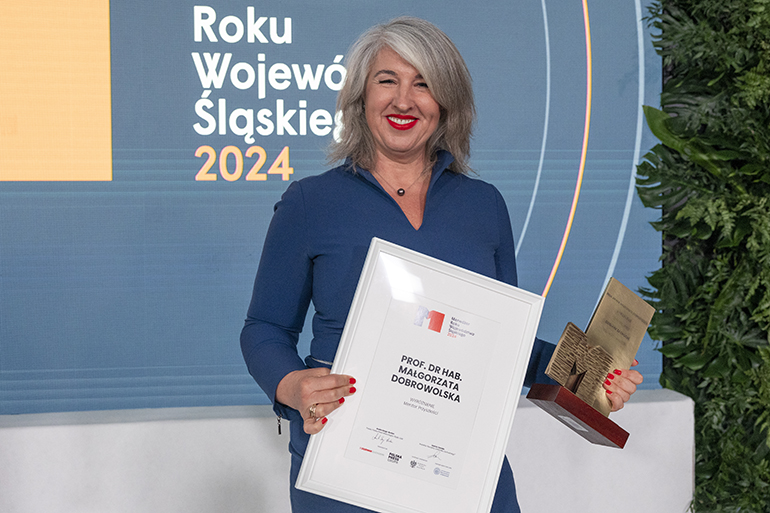
W ostatnim dniu ECC wręczono także nagrody w konkursie Menedżer Roku 2024 Województwa Śląskiego. Wyróżnienie dla mentora przyszłości odebrała prof. Małgorzata Dobrowolska, dyrektorka Szkoły Biznesu Politechniki Śląskiej.
Fot. Maciej Mutwil








